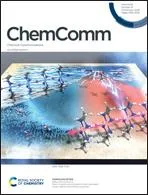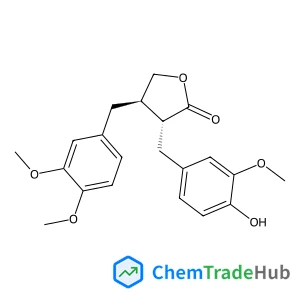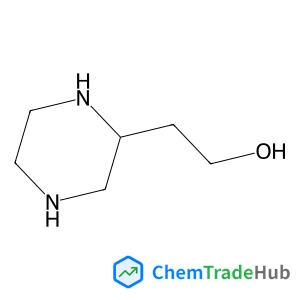Spontaneous superlattice formation of ZnO nanocrystals capped with ionic liquid molecules
文献情報
Da-Peng Liu, Guo-Dong Li, Ji-Xue Li, Xin-Hao Li, Jie-Sheng Chen
Size-dependent 3D superlattices have been fabricated from ZnO nanocrystals capped with ionic liquid components; on the basis of X-ray diffraction, two packing modes, that is, hexagonal and face-centered cubic close packings, have been discovered for the superlattices consisting of the ZnO nanocrystals as building blocks.
関連文献
IF 6.367
Catalogue of self-targeting nano-medical inventions to accelerate clinical trialsIF 6.843
Sugar ketals as a platform molecule to overcome the limitation of converting biomass into green-hydrocarbons in a typical refineryIF 6.367
Triboelectric nanogenerators for a macro-scale blue energy harvesting and self-powered marine environmental monitoring systemIF 6.367
Illuminating endosomal escape of polymorphic lipid nanoparticles that boost mRNA deliveryIF 6.843
Transition-metal-free insertion reactions of alkynes into the C–N σ-bonds of imides: synthesis of substituted enamides or chromonesIF 6.222
An improved fluorescent protein-based expression reporter system that utilizes bioluminescence resonance energy transfer and peptide-assisted complementationIF 6.222
Developing a novel high performance NaNbO3-based lead-free dielectric capacitor for energy storage applicationsIF 6.367
Interfacial engineering of a polymer–MOF composite by in situ vitrificationIF 6.222
The limits to biocatalysis: pushing the envelopeIF 6.222
掲載誌
Chemical Communications

ChemComm publishes urgent research which is of outstanding significance and interest to experts in the field, while also appealing to the journal’s broad chemistry readership. Our communication format is ideally suited to short, urgent studies that are of such importance that they require accelerated publication. Our scope covers all topics in chemistry, and research at the interface of chemistry and other disciplines (such as materials science, nanoscience, physics, engineering and biology) where there is a significant novelty in the chemistry aspects. Major topic areas covered include: Analytical Chemistry Catalysis Chemical Biology and medicinal chemistry Computational Chemistry and Machine Learning Energy and sustainable chemistry Environmental Chemistry Green Chemistry Inorganic Chemistry Materials Chemistry Nanoscience Organic Chemistry Physical Chemistry Polymer Chemistry Supramolecular Chemistry
おすすめ化合物
おすすめサプライヤー
 Teclis SAS
Teclis SAS Vulkan-Verlag GmbH
Vulkan-Verlag GmbH 浙江省ブライトゴールド銅工業株式会社
浙江省ブライトゴールド銅工業株式会社 株式会社メゾ
株式会社メゾ ジョーク電子排水ベリパネル上海販売会社
ジョーク電子排水ベリパネル上海販売会社 諸城泰盛化工股份有限公司
諸城泰盛化工股份有限公司 Dinkelberg analytics GmbH
Dinkelberg analytics GmbH 上海優拓医薬科技有限公司
上海優拓医薬科技有限公司 オルクアイ・トルロセン
オルクアイ・トルロセン Verfahrenstechnik Schweitzer GmbH
Verfahrenstechnik Schweitzer GmbH












![59156-70-6 - 1,1'-[(1,6-Dioxo-1,6-hexanediyl)bis(oxy)]di(2,5-pyrrolidinedione) 59156-70-6 - 1,1'-[(1,6-Dioxo-1,6-hexanediyl)bis(oxy)]di(2,5-pyrrolidinedione)](/structs/591/59156-70-6-0f4b.webp)

